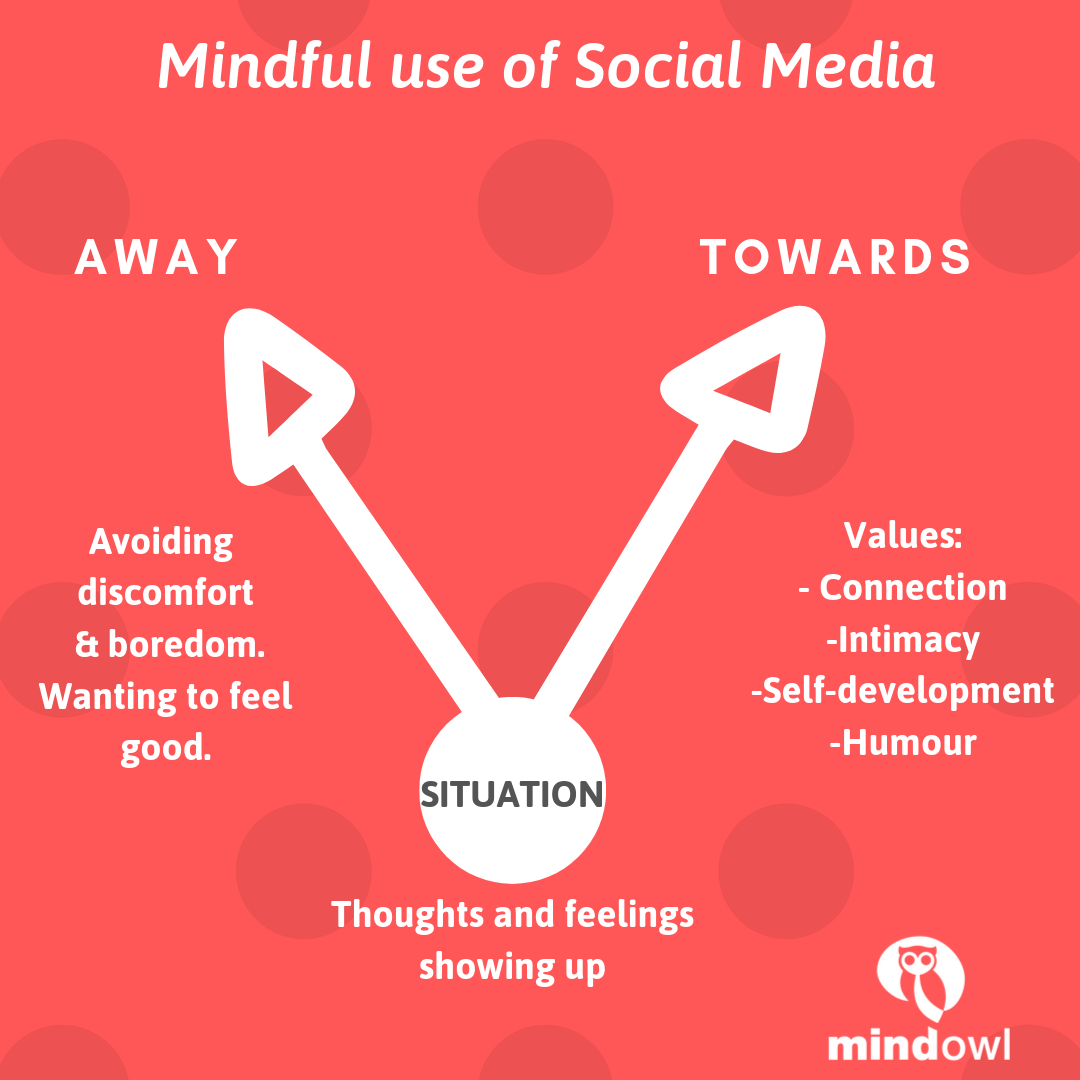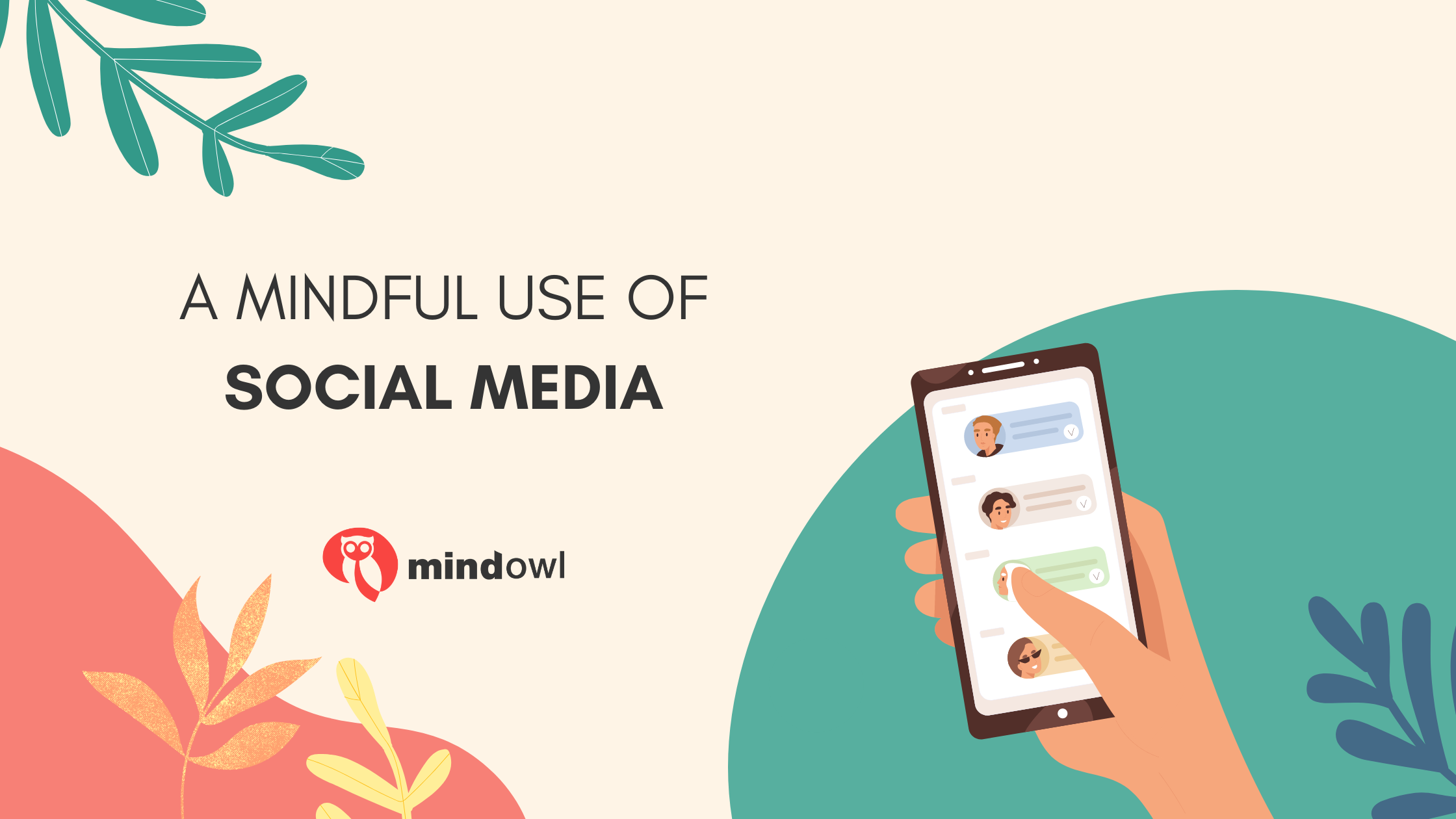How many times today did you feel the urge to check your mobile phone? Rationally you know that you aren’t expecting any important messages and you don’t need to use it for any special reason. Still, you just feel that you have to check it one more time. Do you sometimes feel that social media today drains your energy or creates an emotional reaction? Perhaps you compared your life to that of an old school friend and started thinking that you made the wrong career choice or noticed some heartless comments on a topic that’s dear to you and now you have completely lost faith in humanity. Still, once again you have to check it. With each of us spending an average of two to four hours on our social network each day, how can we approach it more mindfully and wisely? Is there a way to use it as a tool instead of being used by it?
Far from being terrible, Facebook, Instagram and other social media platforms can be used to connect with friends you don’t see very often, providing a sense of belonging. They can be used as a way of expressing oneself, perhaps you could post a poem you wrote, a picture you took or anything you believe is worth sharing. Or it can be used just to stay in the loop by getting to know what’s going on in your friends’ lives and the world in general. However, with these benefits, there are downsides too. It’s not difficult to feel addicted. Social life comparison is just a click away and it’s quite easy to lose your temper when we see some people’s opinions.
How can we create a more mindful approach to it?
Mindfulness is a popular word these days, it’s used everywhere and can have many meanings. However, here I’m referring to the ability to focus our attention deliberately on what’s happening inside and outside of us, instead of being carried away by automatic thoughts and urges. By slowly developing more flexible attention we can move away from urges we experience to everything else that’s happening and then ask, “How would I like to proceed?”. You can learn more about mindfulness by checking our article about it here.
Here are some tips to help you develop a mindful and wiser approach to the use of social media apps:
Recognise your triggers
A simple model of human behaviour can be described as “Trigger, Behaviour, Reward”. This mechanism is present in every single species on the planet. First, something happens, then we act and depending on the consequences, the behaviour will continue or slowly decrease. Positive consequences tend to make behaviours persist and negative ones tend to make behaviours stop. That is if we are feeling good every time we do something it will soon become a habit.
Once you know that, you can start mapping your cycles of social media usage. For example, you can feel bored with work (Trigger), you pick up your mobile phone and check your social media account (Behaviour) and you feel better because work is not a problem for the next couple of minutes (Reward). The instant relief that checking social media provides makes us keep doing the same thing over and over again. Another example of a trigger could be anxiety or another negative emotion, and you start feeling a sense of uneasiness, then you check your mobile phone and the tension is released because you saw that your last post received many likes. The list of possible triggers is endless: tiredness, sadness, avoidance, worry, stress or looking to feel good. For each of us, our triggers can be different. As soon as you start feeling the urge to check your mobile phone, ask yourself is this a positive feeling? What is creating this need to go online right now?
Develop a more flexible attention
It’s not uncommon to feel “hooked” by the urge to go online and check what’s happening. By “hooked” I mean that feelings can sometimes be so strong that we have no other choice but to go with them and do what they urge us to do. You have probably experienced that feeling before whether it was when you wanted to check your mobile phone, when you had an urge for a drink or when you crave a specific type of food. You were “hooked” by your feelings if that happened to you.
However, we can slowly train our attention to override those automatic behaviours. That’s where mindfulness comes in. Right at the moment when we start feeling this urgent need to use social media, take a couple of deep breaths and focus your attention on the air coming in and out of the bodies (that will help to take your mind from a reactive to a more responsive mode). Then, move your attention away from the urge (which happens inside of us in the mind and/or in the body) to your surroundings. You can try focusing on one sense at a time. For example, by focusing on what you can see and saying to yourself “seeing, seeing”, or focusing on the sense of touch and saying “touching, touching”. Lastly, expand your attention to what’s going on in the place we happen to be at the moment, using as many senses as possible. By doing that you can drastically alter the impact some feelings have on you. If we feel the urge is still dominant, you can just say to yourself “I’ve noticed a need to check my phone” and move your attention back to where you were focusing before. Here’s a step by step process:
- Take deep breathes while focusing on the air coming in and out of the nostrils,
- Focusing on one sense at a time (vision, touch, hearing…)
- Expand your attention by connecting to the world around you
- Noticing the urge and saying “I’m noticing the need to check my phone”
- Repeat
- Get in touch with your values.
Our values are like a compass guiding us to the kind of life we want to live and the person we want to be. When experiencing strong emotions it’s easy to get carried away and lose touch with what is truly important to us at the moment. By practising the exercise mentioned above, we can create some space between the trigger and our behaviour. In that space we can ask ourselves “is this going to help my daily life I want to create?” or “how’s this behaviour important to me?”. It’s important to reflect on what social media bring to our lives. As mentioned, some of its uses can be extremely beneficial. So ask what you want to get out of it. Is it that I want to connect with close friends? If so then Connection is a value for you. Do you want to share something with your partner? If so then Intimacy could be one of your values. Are you using it to learn new skills? Then Self-development is also a value you may have. Or even when just checking the latest meme, then the value of Humour is what’s important here. Or are you just running away from the discomforts or negative feelings at this moment?
A great tool that can help you visualise this is called the choice point (see below). As soon as we notice any uncomfortable or bad feelings and the urge to go online, we can stop, take a deep breath and ask “Is this action going to take me towards or away from my values? Is it in line with the person I want to be or is just going to make me feel more disconnected from what I want for myself?” Seeing what we want from that behaviour, whether it’s the need to check our notifications, visit a website or text, someone, will help us decide on the best way to proceed.
By slowly understanding our triggers, developing more flexible attention and getting in touch with our values, we all can make positive use of technology and turn it into a tool that helps us to get closer to what’s important.
How to be mindful as a social media user
When we make a status update or a social media post, we should consider the impact it’s going to have on ourselves and on others before we upload it. We should also keep in mind how often we go to social media as too much can take away from our life satisfaction and have practical implications for our health, feelings and thoughts. Take the time to create as well as take in from others, this can help to provide an emotional stimulus to guide away from negativity and focus on the positive. The next time you pick up your phone or if there is a social media update, take a moment and think: what do I want out of this? Is it going to make me feel better? What could I be doing instead? Asking these questions raises awareness of how you are feeling and maybe will redirect your attention to people, posts or a highlight reel that will make you feel good and positive about yourself or even the day!

By slowing understanding our triggers, by developing a more flexible attention and by getting in touch with our values, we all have the possibility to make positive use of technology and turn it into a tool that helps us to get closer to what’s really important.
Frequently Asked Questions
Why we should be mindful of social media?
Being mindful on Social Media sites develops our listening skills and ability to understand the effect of our words and actions online. We can improve our awareness of the impact our emotional content has on real-life and our social networks.
How to use social media wisely and mindfully?
Social platforms require you to be mindful to keep healthy relationships with others and yourself. Some Social media experiences can have negative effects however try to avoid negativity and be authentic and present. Don’t just scroll and create an unhealthy social media habit.
How to use social media intentionally?
To use social media intentionally, monitor your screen time and online interactions. These social interactions should make you feel positive emotions. If they don’t then unfollow those that have corrosive qualities. Create quality content and intend to follow social media mindfulness practice.
Media mindfulness meaning
Mindful social media emphasises slowness, deliberation, and unwavering focus on one thing, non-judgment. It means to consider your personal experiences and whether social media is having a positive or negative effect. Consider your current experience from time to time or on a daily basis, in order to have media mindfulness.
MindOwl Founder – My own struggles in life have led me to this path of understanding the human condition. I graduated with a bachelor’s degree in philosophy before completing a master’s degree in psychology at Regent’s University London. I then completed a postgraduate diploma in philosophical counselling before being trained in ACT (Acceptance and commitment therapy).
I’ve spent the last eight years studying the encounter of meditative practices with modern psychology.


3 thoughts on “A mindful use of social media”